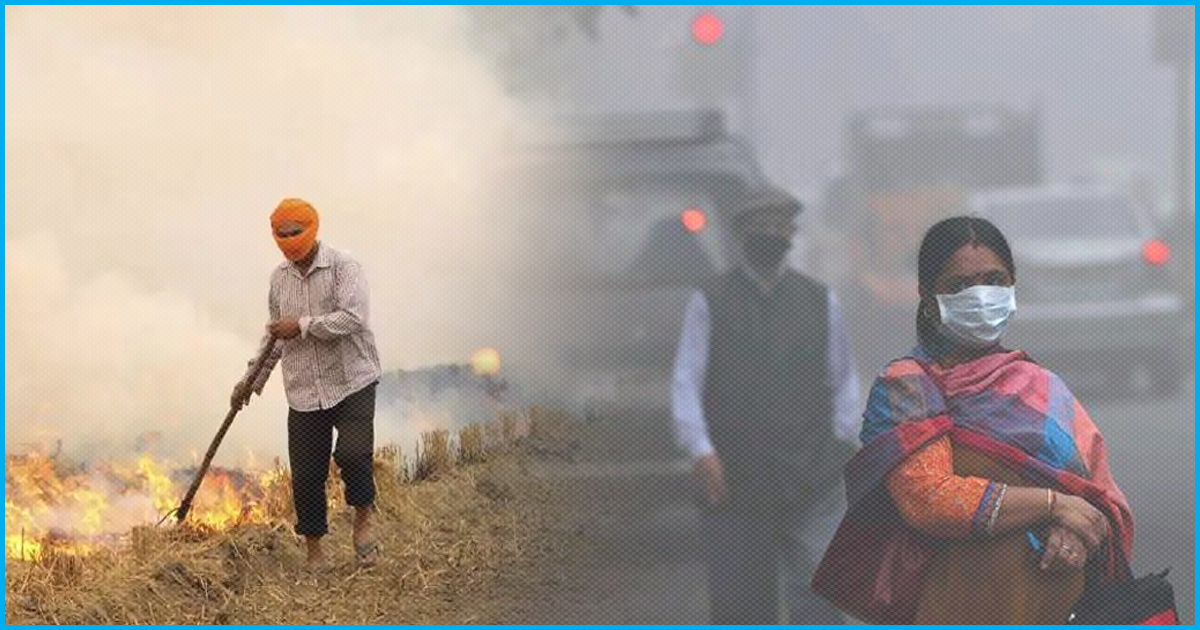Despite the rain, the pollution level in the Delhi-NCR region is still severe. The Particulate Matter 2.5 level today is bad at most of the places with air quality index at 559 in Sonia Vihar, 551 in Ghaziabad and 353 in Gurugram.
Considering the severity of the situation and non-stop burning of stubble in neighbouring states of Delhi, National Green Tribunal(NGT) has ordered to deny minimum support price to farmers who continue to burn stubble.
The decision was taken on Monday by NGT Delhi bench headed by Justice Adarsh Kumar Goel. The bench took note of the reports “All fiddle as crop stubble burns, farmers say solutions out of reach” and “Day after Dussehra, air quality dives, slight haze over city” published on The Indian Express and The Times Of India respectively highlighting the factor that various measures that were taken by the state governments have not yielded results, resulting in deterioration of air quality after Dussehra.
Delhi air quality and stubble burning
The order said that crop burning primarily in the States of Punjab, Haryana and to some extent in the states of Uttar Pradesh and the NCT of Delhi, has led to the deterioration of air quality. The central government came up with “National Policy for Management of Crop Residue – 2014” to help farmers to avoid crop burning but the problem still subsists.
As per the report of The Economics Times, stubble burning will continue for a week as farmers are preparing to sow wheat crop as soon as possible and to do that they might not go with the alternative steps methods like machinery and equipment and go with stubble burning which takes a shorter time.
NGT order
NGT has directed the Union Agriculture Secretary and chief secretaries of Punjab, Haryana, Uttar Pradesh and Delhi to remain present on November 15 after applying due diligence and strategic planning for action to prevent crop burning.
“We are not at the moment considering the issue of adverse coercive measures like prosecution etc. for offences under the Air (Prevention and Control of Pollution) Act, 1981 or other applicable laws. We, however, do not see any difficulty why such economic incentives and disincentives should not be duly planned or executed. We make it clear that the existing Minimum Support Price (MSP) Scheme must be so interpreted so as to enable the concerned States to wholly or partly deny the benefit of MSP to those who continue to burn the crop residue,” said NGT in its order.












